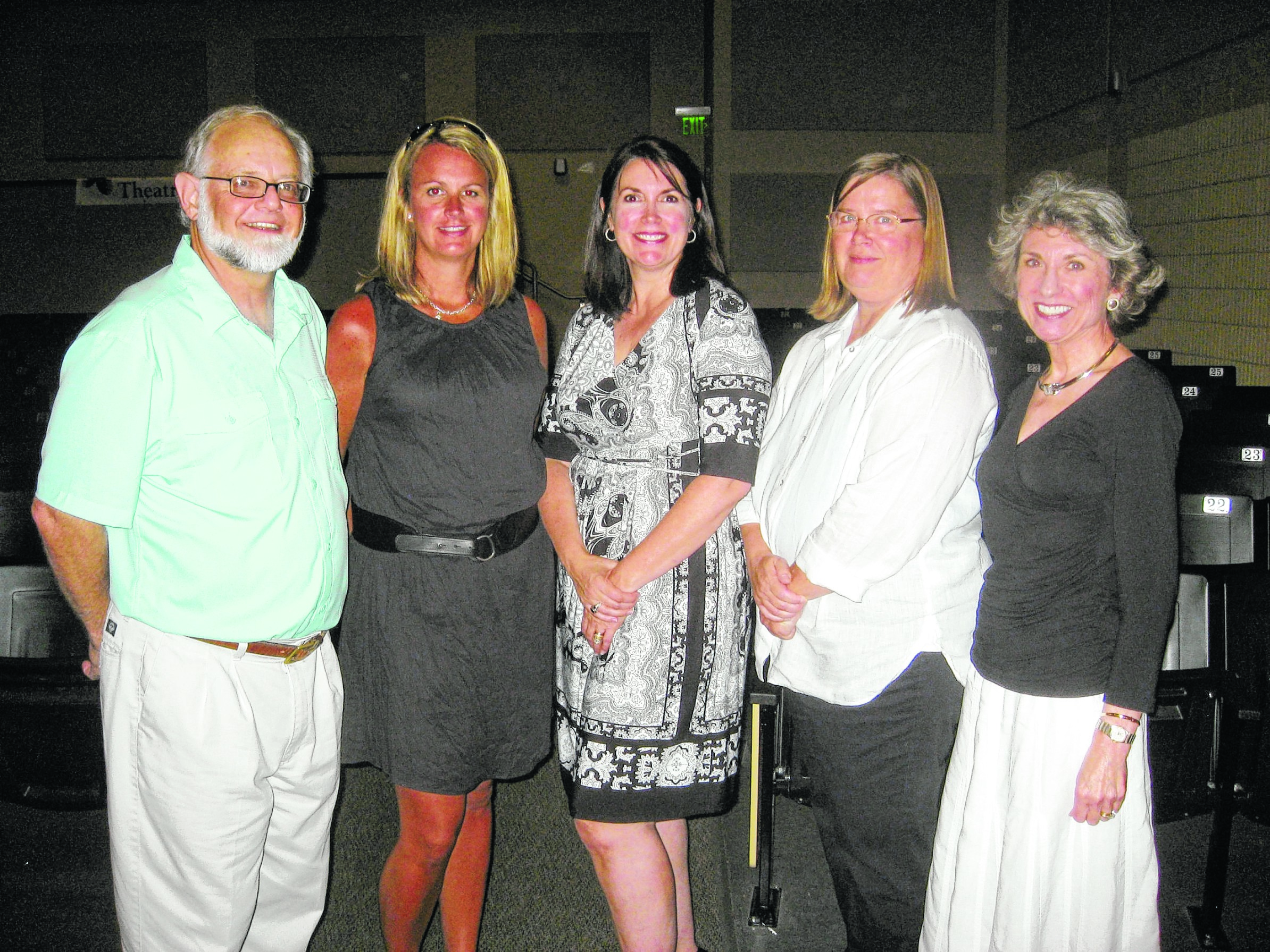Signal Mountain's award-winning schools are a big draw for parents and students. But there's still room for improvement, according to local educators.
"A lot gets said about educational reform and fixing the bottom-performing students," said Signal Mountain High School biology teacher Dean Cress. "The problem with kids coming from schools like Signal Mountain - smart, affluent kids graduating with 3.4s - is they're still not being competitive, they're not being prepared.
 Dean Cress, Raquel Newton, Ronna-Renee Jackson, Heidi Mies and Gay Negus, from left, are asking community members to brainstorm the multitude of ways they can get involved with local schools. With the new STEM school set to open in Chattanooga this fall, best practices are going to be shared amongst the region's schools.
Dean Cress, Raquel Newton, Ronna-Renee Jackson, Heidi Mies and Gay Negus, from left, are asking community members to brainstorm the multitude of ways they can get involved with local schools. With the new STEM school set to open in Chattanooga this fall, best practices are going to be shared amongst the region's schools."We don't recognize it. I didn't recognize it with my kids."
To help make the country as a whole more competitive, the Chattanooga community received federal money to open a school centered around science, technology, math and engineering. As school officials prepare for the public charter school's first class of students, set to arrive this fall, local educators are studying up on ways to share best practices and resources amongst all area schools.
"What we're trying to do is take the innovations and best practices that are going on all across the community behind closed doors ... and connect the dots all across the region and get them back to teachers and students across the region," said Ronna-Renee Jackson, interim director of the Chattanooga Technology Council who is involved with the STEM school.
That mission resulted in several recent community meetings to "identify resources."
"We're really looking at a shortage of qualified employees in our workforce," Jackson said at the Signal Mountain meeting. "The purpose tonight is to really identify what the assets in this community are so we can really close the gap."
With the new STEM curriculum, which involves real-world applications and problem solving as opposed to the textbook work and exercises of years past, there are a great number of ways for everyday people to get involved.
"The lessons are going to be real because that's the way the textbooks write them, but if we could have a real live person who does this every single day it'd be more believable, more hands-on than reading in a textbook and having kids draw it on graph paper," said fourth- and fifth-grade science teacher Heidi Mies, who will be transferring from Thrasher to teach at the new STEM school this fall.
Jackson encourages people to stretch their brains and think of their strengths, skills, knowledge, gifts and contacts when brainstorming ways they could possibly help.
"I think the good turnout of that [Signal Mountain] meeting shows they really do want to get engaged and really do want to be part of this," said Southeast Tennessee STEM Innovation Hub Managing Director Tracey Carisch. "As we have opportunities to share their innovations with other parts of the region and bring other innovations in STEM to Signal Mountain they will be very open to that."
To share thoughts or ways you'd like to or think you could get involved visit www.chatc.org.